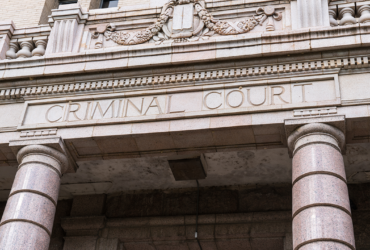A plea is a defendant’s formal response to criminal charges brought against the defendant in open court
There are three possible pleas one could make:
- Not guilty
- Guilty
- No-contest
The initial plea is made at the defendant’s arraignment. At the arraignment, the court will also ask the defense whether a formal reading of the criminal complaint can be waived. Once waived, the judge will ask the defendant for their plea.
Not Guilty
Defense counsel almost always recommends that the client plead not guilty regardless of the defendant’s guilt. Arraignment is more of a procedural hearing than a disposition of the case. At the arraignment, the defense will formally demand discovery from the prosecutor and schedule the next court appearance.
Sometimes, the defense can ask the court to continue the arraignment for a week or two. This gives the defense lawyer and client more time to evaluate the evidence and considers how to posture the case at further proceedings.
Guilty
This seldom happens unless the defense attorney has already struck a favorable plea with the prosecutor. This means the defendant will know precisely what he is pleading guilty to, the penalties, and the amount of jail time, if any, he will need to serve.
The judge will ask the prosecutor to recite the terms of the plea bargain in open court, and the defendant will be asked how he pleads. Once the defendant pleads guilty, the judge will ask defense counsel to waive time for sentencing. This will be agreed upon, and the judge will pronounce the sentence consistent with the agreed terms.
No-Contest
This is a plea in which the defendant neither admits nor denies the charges. The plea is one of not guilty and places the burden on the prosecution to prove the case beyond a reasonable doubt.
Many courts will not allow the defendant to plea no-contest before sentencing. The court will want an admission of guilt from the defendant for the victim’s benefit should a civil case be pursued against the defendant.





